
International Electronic Journal of Mathematics Education
Scope & Guideline
Fostering Global Collaboration in Mathematics Education
Introduction
Aims and Scopes
- Innovative Pedagogical Approaches:
The journal emphasizes the exploration and implementation of innovative teaching strategies, including the use of technology, inquiry-based learning, and collaborative learning environments. - Professional Development for Educators:
A core aim is to provide insights into effective professional development models that enhance the skills and knowledge of mathematics teachers, particularly through lesson study and reflective practices. - Student Learning and Engagement:
Research focusing on student attitudes, conceptual understanding, and engagement in mathematics is central to the journal, examining factors that influence student performance and motivation. - Assessment and Evaluation in Mathematics Education:
The journal addresses various assessment methods, including formative and summative assessments, and their role in measuring student understanding and guiding instruction. - Diversity and Equity in Mathematics Education:
There is a consistent focus on issues of equity and diversity, exploring how different backgrounds and experiences affect student learning in mathematics. - Cognitive and Psychological Aspects of Learning:
The journal includes studies on cognitive processes, such as reasoning, problem-solving, and the emotional aspects of learning mathematics, providing a comprehensive view of the factors that affect learning outcomes.
Trending and Emerging
- Integration of Technology in Mathematics Education:
There is an increasing focus on the use of technology, including software and online platforms, to enhance mathematics teaching and learning, as seen in studies related to gamification and blended learning environments. - Collaborative Learning and Professional Development:
Research exploring collaborative models, such as lesson study and peer mentoring, is on the rise, highlighting the importance of community and shared practice among mathematics educators. - Social Justice and Equity in Mathematics Education:
Emerging themes around social justice and equitable practices in mathematics education are gaining prominence, addressing how systemic issues impact student learning and engagement. - Mathematical Discourse and Argumentation:
The focus on discourse, argumentation, and reasoning in mathematics classrooms is becoming increasingly important, emphasizing the role of communication in developing understanding. - Culturally Relevant Pedagogy:
There is a growing interest in culturally relevant teaching practices that connect mathematics education to students' cultural backgrounds and experiences, fostering a more inclusive learning environment.
Declining or Waning
- Traditional Lecture-Based Instruction:
Research focusing on traditional lecture methods is declining, as there is a growing emphasis on active learning strategies and student-centered approaches in mathematics education. - Standardized Testing Practices:
There is a noticeable decrease in studies centered on standardized testing, likely due to a shift towards more formative and performance-based assessments that better reflect student understanding. - Basic Computational Skills:
The focus on basic computational skills is waning as educational research increasingly prioritizes higher-order thinking skills, problem-solving, and real-world applications of mathematics. - Teacher-Centric Models of Instruction:
Research that primarily examines teacher-centric instructional models is becoming less common, with a shift towards collaborative and student-driven learning environments. - Historical Perspectives in Mathematics Education:
While historical perspectives have been valuable, their prevalence in recent publications has diminished in favor of contemporary methodologies and current educational challenges.
Similar Journals
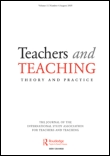
Teachers and Teaching
Advancing Educational Practices for Tomorrow's LeadersTeachers and Teaching is a premier scholarly journal published by Routledge Journals, Taylor & Francis Ltd, providing an essential platform for researchers, educators, and practitioners in the fields of Education and Arts and Humanities. With an editorial focus on the dynamics of teaching and learning, the journal aims to share innovative research and insightful discussions that enhance pedagogical practices and policy development. Notably, it has achieved a Q1 ranking in both the Arts and Humanities and Education categories, signifying its impact and relevance in educational research, as reflected in its Scopus rankings, with an 84th percentile for Arts and Humanities and a 76th percentile in Education. Although it does not offer open access, the journal provides extensive access options for libraries and institutions, making its rich content available to a wide audience. Spanning from 1995 to 2024, Teachers and Teaching continues to set the standard for high-quality scholarship in the evolving landscape of education, inviting contributions that explore challenges and innovations in teaching methodologies.
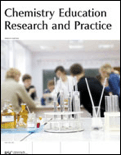
Chemistry Education Research and Practice
Empowering Educators with Cutting-Edge Chemistry InsightsChemistry Education Research and Practice is a prominent journal dedicated to advancing the field of chemistry education through rigorous research and innovative practices. Published by the Royal Society of Chemistry, this journal, with an ISSN of 1109-4028 and an E-ISSN of 1756-1108, operates out of Greece and has established itself as a leading voice in the intersection of chemistry and educational methodology. With a remarkable impact factor and ranking in the top quartiles (Q1) for both Chemistry and Education in 2023, it appeals to a diverse audience of researchers, educators, and practitioners who are passionate about enhancing chemistry instruction and learning experiences. The journal spans a wide range of topics, aiming to promote and disseminate high-quality research that informs pedagogical strategies, curriculum development, and educational policy. By providing a platform for vibrant discussions and new ideas, Chemistry Education Research and Practice plays a crucial role in shaping the future of chemistry education worldwide and continues to impact the academic community significantly.
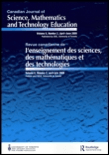
Canadian Journal of Science Mathematics and Technology Education
Empowering Educators with Cutting-edge InsightsCanadian Journal of Science Mathematics and Technology Education (ISSN: 1492-6156; E-ISSN: 1942-4051) is a prominent publication by SPRINGER based in Switzerland, dedicated to exploring innovative methodologies and practices in the fields of science, mathematics, and technology education. Established in 2001 and continuing to 2024, the journal maintains a strong reputation within the academic community, reflected in its Q2 ranking in the Education category for 2023 and a commendable Scopus ranking that places it in the top 25% of journals within the social sciences education domain (Rank #383/1543). This journal serves as a critical platform for researchers, educators, and practitioners interested in the latest developments, research findings, and discussions pertaining to instructional strategies and curricular advancements. Although it is not open access, the journal's insights and contributions are invaluable for those aiming to elevate educational practices and address contemporary challenges in STEM education.

Avances de Investigacion en Educacion Matematica
Connecting Researchers and Educators for Enhanced Learning Outcomes.Avances de Investigacion en Educacion Matematica, published by the SOC ESPANOLA INVESTIGACION & EDUCACION MATEMATICA-SEIM, is a prominent open-access journal dedicated to advancing research and education in the field of mathematics. Since its inception in 2018, this journal has provided a platform for scholars to disseminate innovative findings and pedagogical strategies that enrich mathematical understanding and enhance educational practices. With an impact factor that places it in the Q2 quartile for both Education and Mathematics (Miscellaneous) categories, the journal ranks 179th among General Mathematics publications and 936th in Education, indicating a growing influence within the academic community. Based in Spain, Avances de Investigacion en Educacion Matematica is committed to fostering collaboration and extensive discourse among researchers and educators alike, empowering them to address contemporary challenges in mathematics education. As an open-access journal since 2022, it offers both researchers and practitioners unrestricted access to valuable resources and articles, ensuring that cutting-edge research is widely available to those who shape the future of mathematics education.

Teaching of Mathematics
Fostering Scholarly Dialogue in Mathematics TeachingTeaching of Mathematics is an esteemed open-access journal devoted to the field of mathematics education, published by DRUSTVO MATEMATICARA SRBIJE in Serbia. Since its inception in 1998, the journal aims to foster scholarly dialogue and disseminate research findings that contribute to the effective teaching and learning of mathematics. Although it currently holds a Q4 ranking in both Education and Miscellaneous Mathematics categories, the journal is dedicated to providing a platform for innovative pedagogical strategies, theoretical discussions, and empirical studies. With an ISSN of 1451-4966 and an E-ISSN of 2406-1077, Teaching of Mathematics offers open access to its content, ensuring that researchers, educators, and students can freely benefit from its contributions. As it converges towards 2024, the journal aspires to enhance its impact and influence within the mathematical education community, encouraging all stakeholders to share their insights and advancements in this critical area of study.
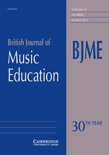
British Journal of Music Education
Fostering Insightful Dialogues in Music PedagogyBritish Journal of Music Education is a prestigious academic publication dedicated to advancing the field of music education. Published by Cambridge University Press, it benefits from a notable impact factor that positions it in the Q2 category in Education and the Q1 category in Music as of 2023. This journal serves as a vital platform for researchers, educators, and students alike, focusing on innovative research, pedagogical studies, and theoretical discussions that shape the practice of music education globally. Since its inception in 1984, the journal has contributed significantly to the understanding of music pedagogy and continues to be relevant and influential, currently spanning the years from 1984 to 1998 and 2007 to 2024. With impressive rankings, including rank #16/180 in Arts and Humanities (Music) and rank #669/1543 in Social Sciences (Education) on Scopus, it highlights the journal's commitment to scholarly excellence. Though it does not currently offer open access, its contributions are an essential resource for anyone involved in the education landscape of music.

International Journal of Science and Mathematics Education
Connecting Research and Practice for Global ImpactWelcome to the International Journal of Science and Mathematics Education, an esteemed publication that has served as a vital platform for cutting-edge research in the fields of science and mathematics education since its inception in 2003. Published by SPRINGER in the Netherlands, this journal has consistently established itself in the top tier of academic publishing, as evidenced by its ranking in the Q1 category for both Education and Mathematics (miscellaneous) in 2023. With an impressive Scopus ranking placing it at #26 in General Mathematics and #269 in Social Sciences Education, the journal is a must-read for researchers, educators, and policymakers dedicated to enhancing the teaching and learning of mathematics and science. Although not open access, the journal is committed to disseminating high-quality research that bridges theory and practice, fostering innovative approaches and collaboration within the academic community. By supporting empirical studies, methodological advancements, and theoretical discussions, the International Journal of Science and Mathematics Education plays a crucial role in shaping educational practices and policies worldwide.
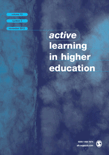
Active Learning in Higher Education
Fostering Engagement and Excellence in Higher EducationActive Learning in Higher Education is a premier journal dedicated to exploring innovative and effective pedagogical practices within the realm of higher education. Published by SAGE Publications Inc, this journal boasts an impressive Q1 ranking in the Education category for 2023, positioning it within the top percentile of academic journals in the field, with a Scopus rank of 21 out of 1543, reflecting its high impact and relevance. With coverage spanning from 2000 to 2024, the journal serves as a critical platform for researchers, educators, and students, providing insightful articles that delve into the theories, strategies, and technologies that enhance active learning experiences. While currently not open access, the enriching content is vital for anyone aiming to stay abreast of evolving methodologies and empirical studies in educational practices. Located in the United Kingdom, this journal is committed to advancing the academic discourse surrounding higher education, making it essential reading for those interested in fostering student engagement and learning outcomes.
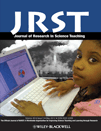
JOURNAL OF RESEARCH IN SCIENCE TEACHING
Empowering Educators with Research-Driven StrategiesJOURNAL OF RESEARCH IN SCIENCE TEACHING, published by WILEY, is at the forefront of educational research, specifically focusing on the dynamic field of science education. With an impressive Q1 ranking in the education category for 2023 and a percentile of 95th among its peers in Scopus, this journal serves as a critical resource for researchers, educators, and policymakers dedicated to improving teaching and learning practices in science. Established in 1963 and consistently published through 2024, the journal caters to a diverse audience by disseminating rigorous, peer-reviewed research that informs instructional strategies, curriculum development, and assessment techniques. Although it does not currently offer open access, the journal remains a prestigious platform for impactful scholarship in science education, located in Hoboken, NJ. Researchers and professionals alike will find here not only valuable insights but also innovative approaches that are essential to advancing science education in the 21st century.

Educacion XX1
Exploring Contemporary Challenges in Global EducationEducacion XX1 is a premier academic journal dedicated to the field of education, published by UNIV NACIONAL EDUCACION DISTANCIA in Spain. With an impressive impact factor and recognition in the Q1 category for 2023 in education, this open-access journal has served as a significant platform for innovative research since 2000. The journal aims to share high-quality empirical studies, theoretical discussions, and reviews that address contemporary educational challenges, promoting a deeper understanding of pedagogical practices and policies. As evidenced by its Scopus ranking of #122/1543 in Social Sciences - Education, along with a notable percentile of 92, Educacion XX1 continues to contribute to the scholarly community while fostering global discourse and collaboration. With a diverse range of articles covering various topics and perspectives, this journal is invaluable for researchers, professionals, and students alike, providing insights essential to advancing education in today’s rapidly evolving landscape.